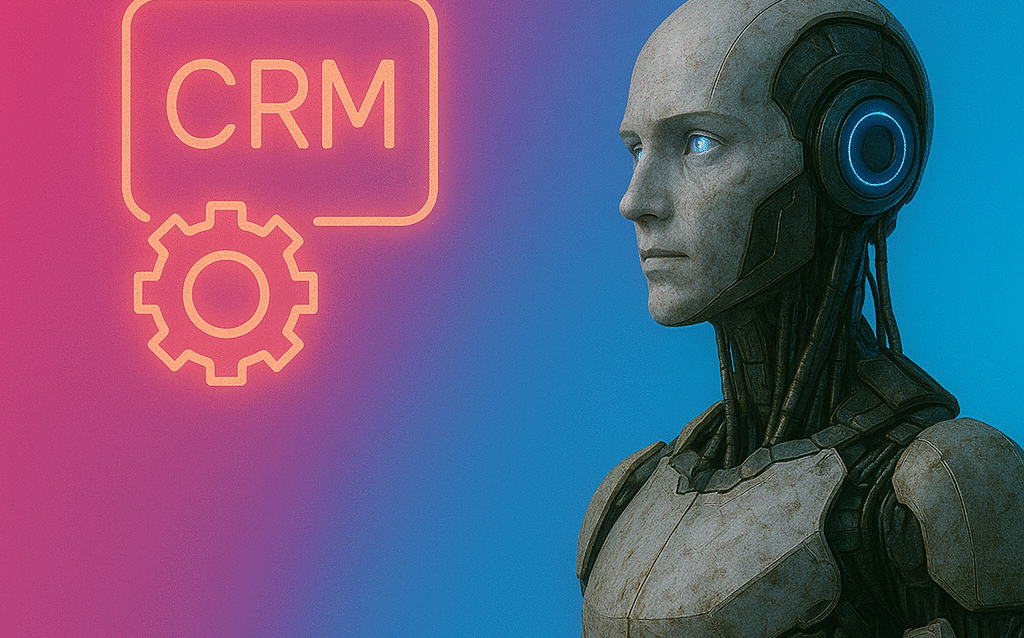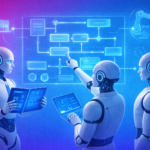In today’s customer-centric landscape, businesses are constantly seeking ways to enhance customer experience and streamline operations. AI Agents have emerged as a powerful tool for achieving these goals, but their true potential is unlocked when integrated with your Customer Relationship Management (CRM) system. This integration is essential for creating a unified view of the customer, personalizing interactions, and maximizing the value of both your Agent and CRM investments. This post explores why CRM integration is crucial and outlines best practices for seamless implementation.
Why CRM Integration is Essential:
Integrating AI Agents with your CRM offers numerous benefits:
- Unified Customer View: Integration provides a 360-degree view of each customer, combining Agent interaction data with existing CRM information. This allows for a more comprehensive understanding of customer needs and preferences.
- Personalized Interactions: By accessing CRM data, Agents can personalize conversations, offering tailored recommendations, support, and promotions.
- Improved Lead Qualification: Agents can collect lead information and automatically update the CRM, streamlining the lead generation process and improving lead qualification.
- Enhanced Customer Service: Agents can access customer history and preferences from the CRM to provide faster and more effective support.
- Automated Data Entry: Agent interactions can automatically update CRM records, eliminating manual data entry and ensuring data accuracy.
- Streamlined Workflows: Integration automates tasks and workflows, freeing up human agents to focus on more complex issues.
How Agent-CRM Integration Works:
Agent-CRM integration typically works through APIs (Application Programming Interfaces). The Agent platform connects to the CRM via API, allowing data to be exchanged between the two systems. When a customer interacts with the Agent, the information is passed to the CRM, and the CRM can provide relevant customer data back to the Agent. This bidirectional data flow enables personalized and context-aware interactions.
Best CRM Tools for Agent Integration:
Many leading CRM platforms offer robust API integrations that facilitate seamless Agent connectivity. Some popular options include:
- HubSpot: HubSpot’s API allows for easy integration with various Agent platforms, enabling businesses to automate marketing, sales, and customer service processes.
- Salesforce: Salesforce, a widely used CRM, offers extensive API documentation and tools for integrating Agents and other third-party applications.
- Zoho CRM: Zoho CRM provides API access and pre-built integrations with popular Agent platforms, making it easier to connect and manage customer interactions.
- Microsoft Dynamics 365: Microsoft Dynamics 365 offers API integrations and tools for building custom integrations with Agents, allowing for seamless data exchange.
It’s crucial to research and compare CRM platforms based on your specific business requirements and Agent integration capabilities.
Personalizing Customer Interactions with AI:
AI-powered Agents can leverage CRM data to personalize customer interactions in several ways:
- Greeting customers by name: Agents can access customer names from the CRM to personalize greetings and create a more welcoming experience.
- Offering tailored product recommendations: Based on past purchases and browsing history stored in the CRM, Agents can suggest relevant products or services.
- Providing proactive support: Agents can access customer support history from the CRM to anticipate potential issues and offer proactive assistance.
- Delivering personalized promotions: Agents can offer customized discounts or promotions based on customer preferences and purchase history.
Overcoming CRM Integration Challenges:
While CRM integration offers significant benefits, some challenges may arise:
- Data security: Ensuring the secure transfer and storage of sensitive customer data is paramount. Choose Agent and CRM platforms with robust security measures.
- API limitations: CRM APIs may have limitations in terms of data access or request frequency. Understand these limitations before integration.
- Data mapping: Accurately mapping data fields between the Agent and CRM is crucial for ensuring data consistency and accuracy.
- Integration complexity: Integrating complex systems can be challenging. Consider working with experienced developers or integration specialists.
Conclusion:
The synergy between CRM systems and AI Agents is transforming how businesses interact with their customers. By integrating these technologies, businesses can create a unified customer view, personalize interactions, automate workflows, and ultimately improve customer satisfaction and drive sales.
Future of CRM and AI Agent Synergy:
The future of CRM and AI Agent integration is promising. We can expect to see:
- More sophisticated AI capabilities: Agents will become even more intelligent, capable of understanding complex queries and providing more personalized experiences.
- Deeper CRM integrations: Integration will become more seamless and robust, allowing for more comprehensive data exchange and automation.
- Predictive analytics: AI will be used to predict customer needs and proactively offer support or recommendations.
By embracing CRM and AI Agent integration, businesses can position themselves for success in the increasingly competitive customer-centric landscape.





